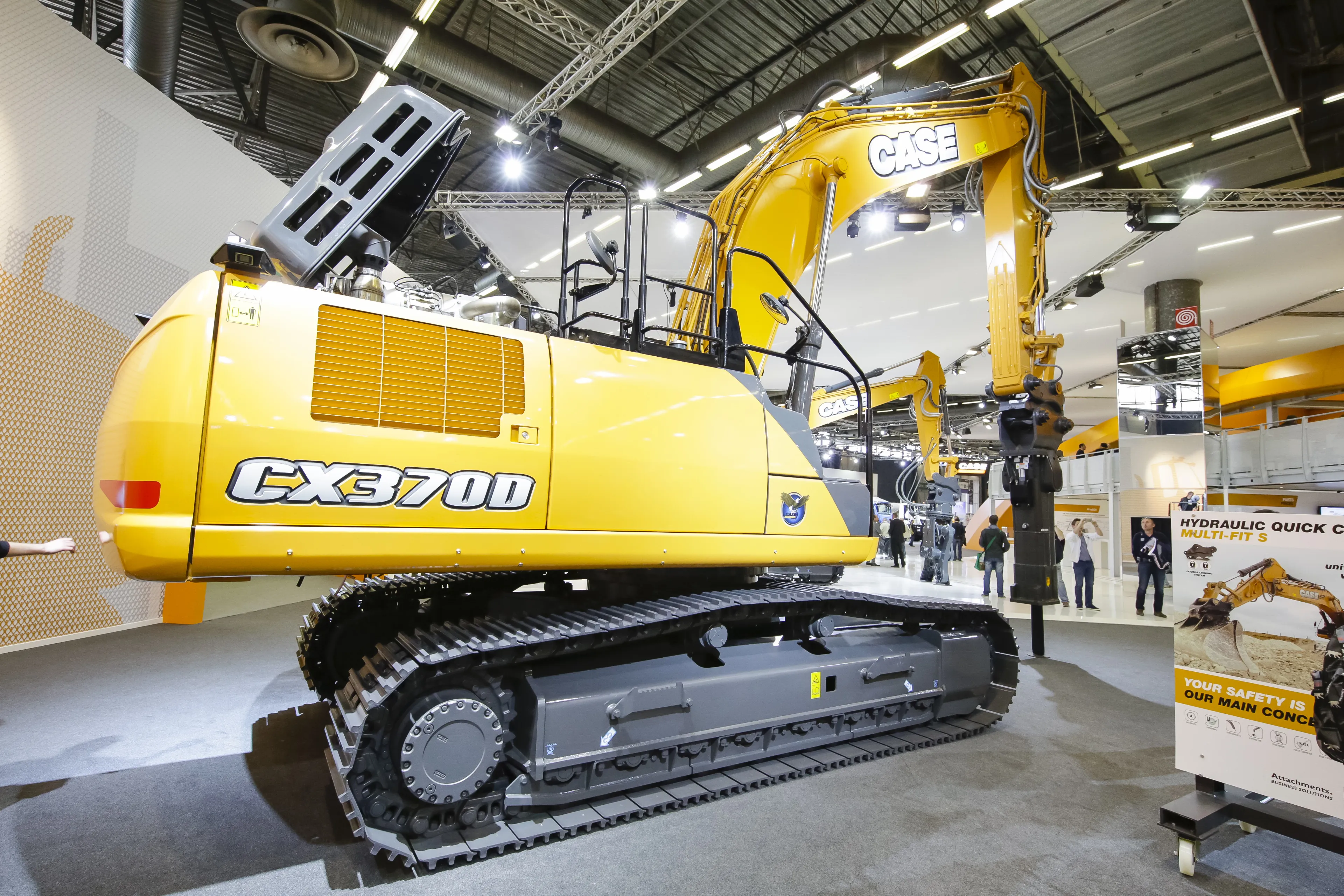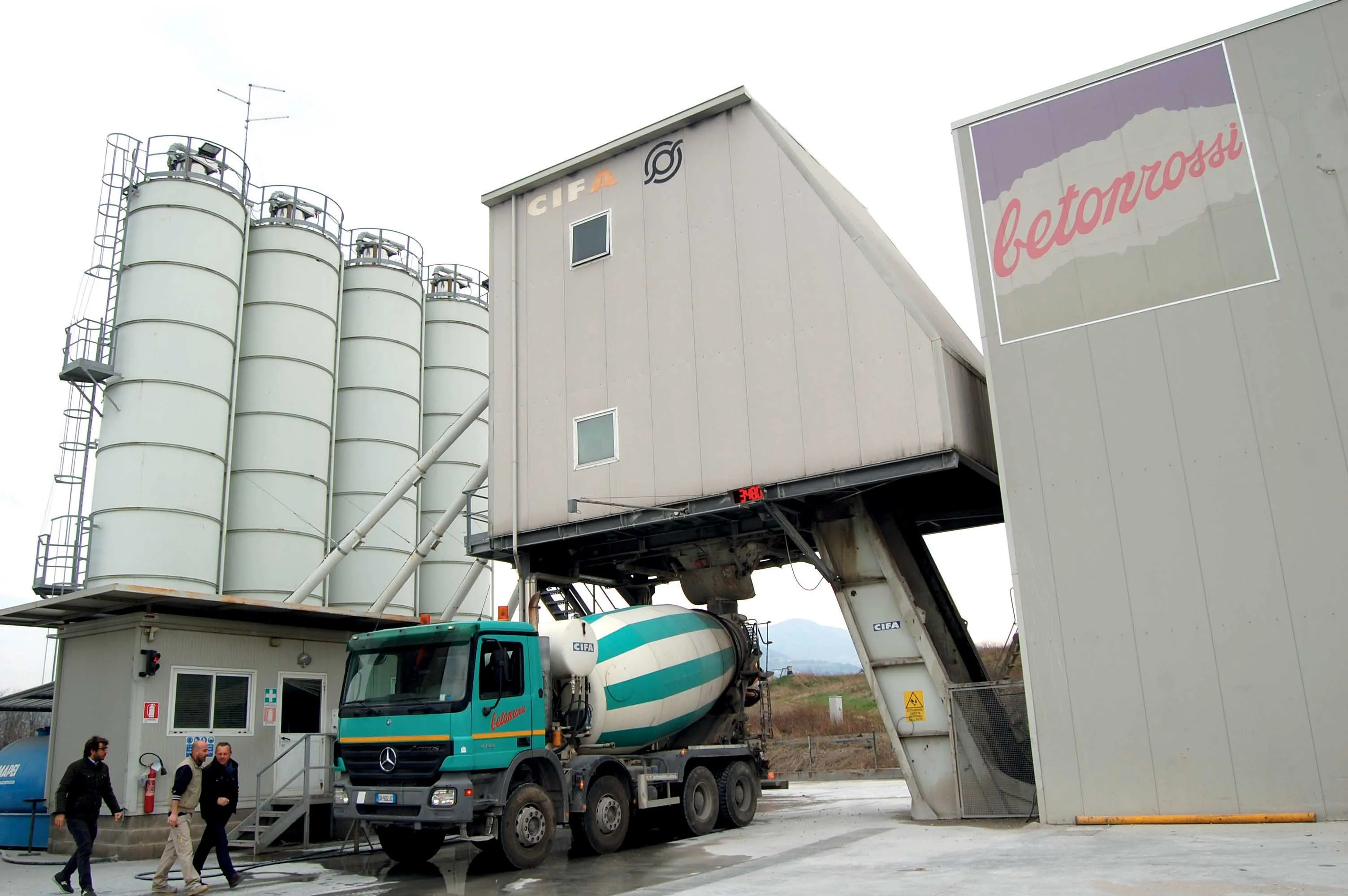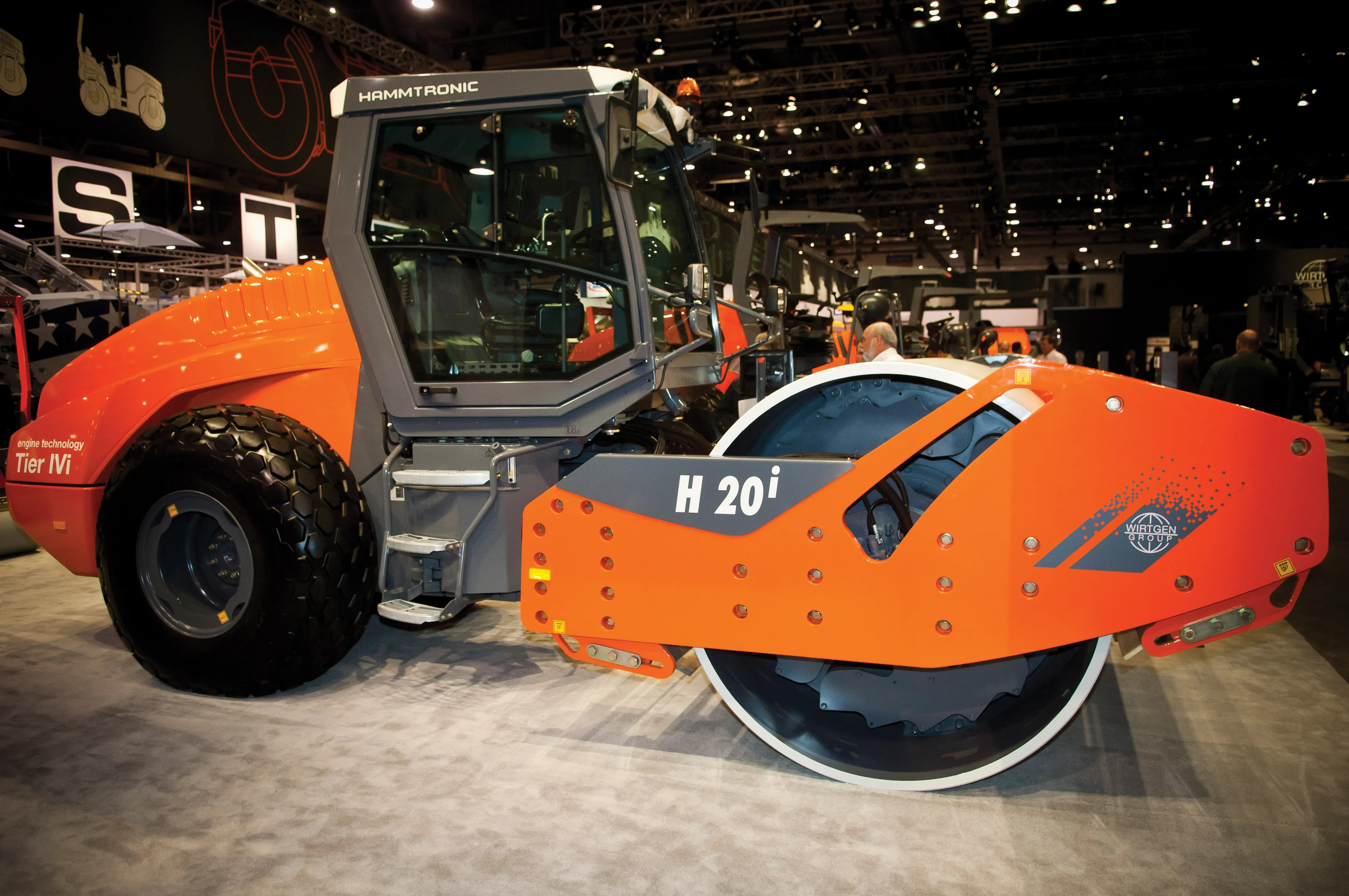
“They’re more robust, they’re heavier and meant for a more rugged job likely to be found on extreme road building sites and in quarry projects,” said Antonio Strati, product and training manager in the company’s construction division. But at the same time the CX250D, CX350D and CX370D are much more productive and economical to run than the previous series.
Yes, they have Tier 4 Final engines that do not require DPF but are SCRE and need blue additive, so there are efficiency savings there by design. But the hydraulic pump system has seen a big improvement with much more electronics being used. There are more sensors along hydraulic lines which feed hydraulic pressure and operational information back to the hydraulic pump that can fine tune which, and where, power is needed most.
The result, said Strati, is around 12% more material moved for the same amount of fuel used. And that is taking into account that the machine is around 1tonne heavier than its predecessor C series.
The added weight comes from a beefed-up undercarriage, explained Strati. Dimensions for parts such as track rollers have been increased, making them more robust. Also, the protective plate around the track wheels has been strengthened and redesigned to slope outwards, so dirt and rocks have less chance to cling the machine and slide off.
While the machine is heavier, this also means its lifting capacity has gone up as well, helping to push up the overall efficiency of the machine.








